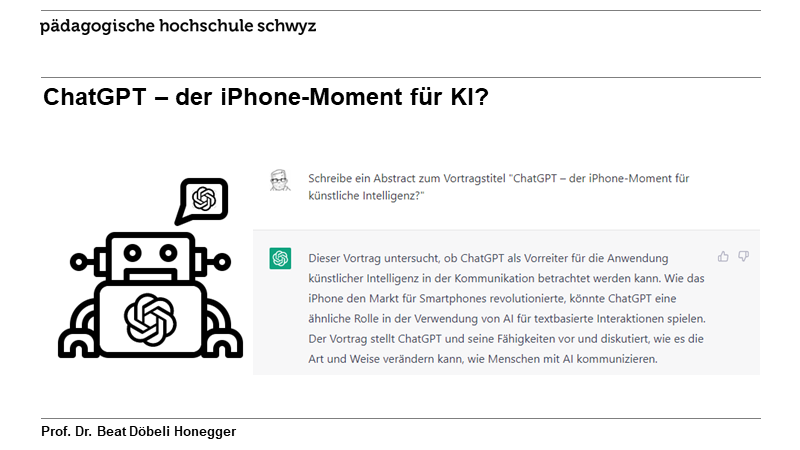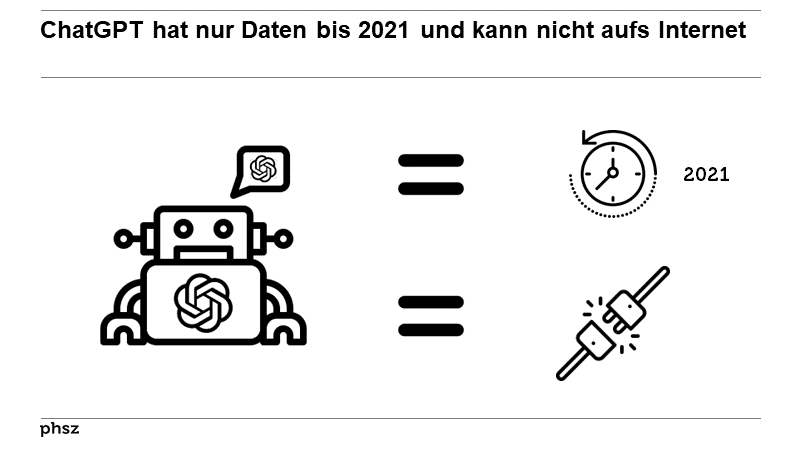Stephen WolframDies ist keine offizielle Homepage von Stephen Wolfram, E-Mails an Stephen Wolfram sind hier nicht möglich! |
 |
 Diese Seite wurde seit mehr als 7 Monaten inhaltlich nicht mehr aktualisiert.
Unter Umständen ist sie nicht mehr aktuell.
Diese Seite wurde seit mehr als 7 Monaten inhaltlich nicht mehr aktualisiert.
Unter Umständen ist sie nicht mehr aktuell.
 4 Bücher von Stephen Wolfram
4 Bücher von Stephen Wolfram 
 4 Texte von Stephen Wolfram
4 Texte von Stephen Wolfram 
| Jahr | Volltext | Abrufe | Text | Texttyp |
|---|---|---|---|---|
| 1983 | 8, 1, 5, 5, 1, 4, 4, 2, 2, 3, 2, 2 | Statistical mechanics of cellular automata (Stephen Wolfram) erschienen in Review of Modern Physics 55, S. 601-644 | Text | |
| 1984 | Cellular automata as models of complexity (Stephen Wolfram) erschienen in Nature 311, S. 419 | Text | ||
| 2023 |   |
6, 8, 1, 1, 5, 6, 6, 2, 3, 2, 1, 1 | Wolfram Alpha as the Way to Bring Computational Knowledge Superpowers to ChatGPT (Stephen Wolfram) | Blogposting |
| 2023 |   |
5 | What Is ChatGPT Doing … and Why Does It Work? (Stephen Wolfram) | Blogposting |
 Definitionen von Stephen Wolfram
Definitionen von Stephen Wolfram
| Gödelsches Theorem |
|
 Bemerkungen von Stephen Wolfram
Bemerkungen von Stephen Wolfram
Von Stephen Wolfram gibt es im Biblionetz Bemerkungen zu:
 Zeitleiste
Zeitleiste
 Begriffswolke von Stephen Wolfram
Begriffswolke von Stephen Wolfram
 Zitate von Stephen Wolfram
Zitate von Stephen Wolfram
 In my experience the single most common mistake in doing computer experiments is to look at Systems that are vastly more complicated than is necessary.
In my experience the single most common mistake in doing computer experiments is to look at Systems that are vastly more complicated than is necessary. Over and over again the single most important principle that I have learned is that the best computer experiments are ones that are as simple and straightforward as possible.
Over and over again the single most important principle that I have learned is that the best computer experiments are ones that are as simple and straightforward as possible. The key unifying idea that has allowed me to formulate the Principle of Computational Equivalence is a simple but immensely powerful one: that all processes, whether they are produced by human effort or occur spontaneously in nature, can be viewed as computations.
The key unifying idea that has allowed me to formulate the Principle of Computational Equivalence is a simple but immensely powerful one: that all processes, whether they are produced by human effort or occur spontaneously in nature, can be viewed as computations. And I suspect that in fact the cun it predominance of partial differential equations is in many respects a historical accident - and that had Computer ter.hnnlogy been developed earlier in the history of mathematics, the Situation would probably now be very different.
And I suspect that in fact the cun it predominance of partial differential equations is in many respects a historical accident - and that had Computer ter.hnnlogy been developed earlier in the history of mathematics, the Situation would probably now be very different. Vorträge von Beat mit Bezug
Vorträge von Beat mit Bezug
 Zitationsgraph
Zitationsgraph
 Zitationsgraph (Beta-Test mit vis.js)
Zitationsgraph (Beta-Test mit vis.js)
 43 Erwähnungen
43 Erwähnungen 
- Reflections on Stephen Wolfram's 'A New Kind of Science' (Ray Kurzweil)
- Die fraktale Geometrie der Natur (Benoit Mandelbrot) (1987)


- Kognitionswissenschaft, Kognitionstechnik - Eine Skizze aktueller Perspektiven (Francisco J. Varela) (1988)


- 4. Stadium 3: Emergenz. - Die Alternative zu Symbolverrechnung
- Der mittlere Weg der Erkenntnis - Der Brückenschlag zwischen wissenschaftlicher Theorie und menschlicher Erfahrung (Francisco J. Varela, Evan Thompson, Eleanor Rosch) (1991)


- 5. Konnektivismus - Wie ein Netzwerk Eigenschaften hervortreten lässt
- Evolution of Parallel Cellular Machines - The Cellular Programming Approach (Moshe Sipper) (1997)


- Studium generale zur Komplexität (Hans Diebner) (2001)


- 7. Altruismus und Soziobiologie
- A New Kind of Science (Stephen Wolfram) (2002)


- The Man Who Cracked The Code to Everything ...But first it cracked him. - The inside story of how Stephen Wolfram went from boy genius to recluse to science renegade. (Steven Levy) (2002)


- LOG IN 130/2004 - Künstliches Leben (2004)

- Lineare zelluläre Automaten (Alfred Hermes) (2004)

- Lineare zelluläre Automaten (Alfred Hermes) (2004)
- Didaktik der Notebook-Universität - Mobiles Lernen auf dem Digitalen Campus (Michael Kerres, Marco Kalz, Jörg Stratmann, Claudia de Witt) (2004)


- Environmental Detectives - PDAs as a Window into a Virtual Simulated World (Eric Klopfer, Kurt Squire, Henry Jenkins) (2004)


- Environmental Detectives - PDAs as a Window into a Virtual Simulated World (Eric Klopfer, Kurt Squire, Henry Jenkins) (2004)
- The Singularity Is Near - when humans transcend biology (Ray Kurzweil) (2005)

- Unterrichtskonzepte für informatische Bildung - 11. Fachtagung Informatik und Schule der Gesellschaft für Informatik (GI) in Dresden (28.-30. September 2005) (Steffen Friedrich) (2005)

- Informatik - didaktische Weiterbildung von Lehrenden (Nicole Weicker)


- Informatik - didaktische Weiterbildung von Lehrenden (Nicole Weicker)
- Tracing the Dynabook - A Study of Technocultural Transformations (John W. Maxwell) (2006)


- Complex Adaptive Systems - An Introduction to Computational Models of Social Life (John H. Miller, Scott E. Page) (2007)
- Creating a Science of Games - Communications of the ACM. Volume 50 , Issue 7 (July 2007) (2007)

- Software Studies - A Lexicon (Matthew Fuller) (2008)

- The Semantic Sphere - Computation, Cognition and Information Economy (Pierre Lévy) (2011)


- The Philosophy of Information (Luciano Floridi) (2011)

- Lehren, Lernen und Fachdidaktik - Theorie, Praxis und Forschungsergebnisse am Beispiel der Informatik (Christina Klüver, Jürgen Klüver) (2012)

- The Engine of Complexity - Evolution as Computation (John E. Mayfield) (2013)

- The Science in Computer Science (Peter Denning) (2013)


- Great Principles of Computing (Peter Denning, Craig Martell) (2015)


- Cyber-Proletariat - Global Labour in the Digital Vortex (Nick Dyer-Witheford) (2015)

- Didaktik der Informatik (Eckart Modrow, Kerstin Strecker) (2016)


- Modality matters - Understanding the Effects of Programming Language Representation in High School Computer Science Classrooms (David Weintrop) (2016)


- Artificial Intuition - The Improbable Deep Learning Revolution (Carlos E. Perez) (2017)


- The Model Thinker - What you neeed to know to make data work for you (Scott E. Page) (2018)


- Computational Thinking (Peter Denning, Matti Tedre) (2019)


- 7. Computational Science
- 9. Future Computation
- 10. Epilogue: Lessons Learned
- Engines of Order - A Mechanology of Algorithmic Techniques (Bernhard Rieder) (2020)


- ChatGPT und andere Computermodelle zur Sprachverarbeitung - Grundlagen, Anwendungspotenziale und mögliche Auswirkungen (Steffen Albrecht) (2023)


- KI ist kein Zufall (Marcel Waldvogel) (2023)


- Künstliche Intelligenz, Large Language Models, ChatGPT und die Arbeitswelt der Zukunft (Michael Seemann) (2023)


- Zwischen Macht und Mythos - Eine kritische Einordnung aktueller KI-Narrative (Rainer Rehak) (2023)


- Education for the Age of AI (Charles Fadel, Alexis Black, Robbie Taylor, Janet Slesinski, Katie Dunn) (2024)

- Alles überall auf einmal - Wie Künstliche Intelligenz unsere Welt verändert und was wir dabei gewinnen können (Miriam Meckel, Léa Steinacker) (2024)

- The Singularity is nearer (Ray Kurzweil) (2024)

- 3. Who am I?
 Anderswo finden
Anderswo finden
 Volltexte
Volltexte
 | A New Kind of Science: Gesamtes Buch als Volltext ( : :  , 56101 kByte) , 56101 kByte) |
 | What Is ChatGPT Doing … And Why Does It Work?: Gesamtes Buch als deutscher Volltext ( : 8007 kByte) : 8007 kByte) |
 | What Is ChatGPT Doing … And Why Does It Work?: Gesamtes Buch als englischer Volltext ( : 5040 kByte) : 5040 kByte) |
 | What Is ChatGPT Doing … And Why Does It Work?: Gesamtes Buch als englischer Volltext ( : :  , 6254 kByte) , 6254 kByte) |
 |  Wolfram Alpha as the Way to Bring Computational Knowledge Superpowers to ChatGPT: Artikel als Volltext ( Wolfram Alpha as the Way to Bring Computational Knowledge Superpowers to ChatGPT: Artikel als Volltext ( : :  , 6320 kByte; , 6320 kByte;  : :  ) ) |
 |  What Is ChatGPT Doing … and Why Does It Work?: Artikel als Volltext ( What Is ChatGPT Doing … and Why Does It Work?: Artikel als Volltext ( : :  , 10299 kByte; , 10299 kByte;  : :  ) ) |


















 Biblionetz-History
Biblionetz-History